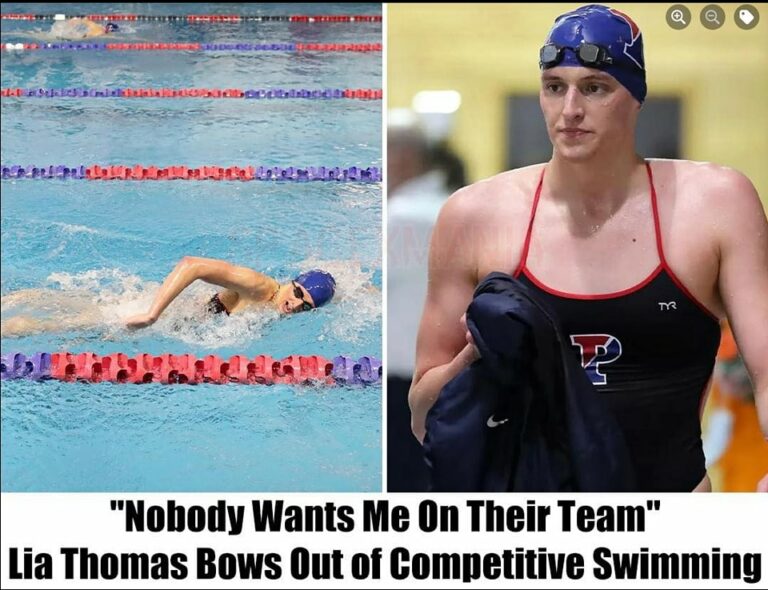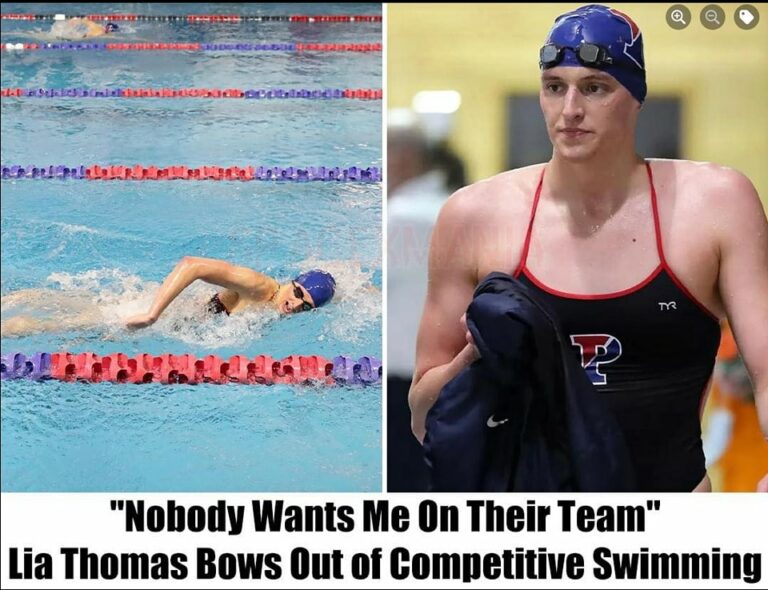Famous swimmer Leah Thomas retires from competitive swimming
In her heartfelt statement released yesterday, renowned swimmer Leah Thomas announced her surprise decision to retire from competitive swimming. Citing her mental strain and her feelings of isolation, Leah spoke about her challenges she faced as a transgender athlete in a sport close to her heart. His statement read: “The waters are ruffled not because of the physical demands, but because of the constant fight for recognition and fairness in this sport I love. Athletes are isolated because of who they are. No one should feel left out or given credit for it.

Lear’s retirement was announced after months of intense debate, petitions and controversy surrounding transgender athletes competing in women’s sports. Her journey has shed light on the challenges faced by transgender athletes both inside and outside of sports. As her story unfolds against a backdrop of public attention, political debate, and ethical considerations, we are prompted to think about the future of competitive sport and the experiences of future athletes.
The need for nuance and consideration in an athlete’s career
Leah Thomas’ supporters believe her departure is a significant loss to the sport and calls for a sensitive and inclusive approach to athletes navigating their careers amid debates over identity. There is. Meanwhile, critics are scrutinizing its results and questioning its potential physiological benefits. As the sports world grapples with the ethical, biological, and social factors surrounding transgender athletes, we consider how this moment will impact the development of competitive sports and the experiences of future athletes. Must be.
A call for common reflection on awareness and space for all athletes
Leah Thomas’ decision to retire has implications beyond her personal journey. This requires us to collectively think about the opportunities, acceptance, and space we provide to all athletes, regardless of gender. Beyond the challenges she faced, Leah’s story highlights the need for an international sports community to promote equity, respect diverse identities, and maintain the integrity of competition. This applies to athletes of all gender identities and experiences, including athletes who identify as transgender.
Balancing inclusivity and equity in traditionally divided areas
However, fundamental questions remain. How can we balance inclusivity and equity in a field that has long been divided along biological lineages? Leah Thomas’ experience highlights the need to rethink the rules of sport, especially those related to gender identity and biological differences. Recognizing that outdated policies may no longer work for current and future athletes can bridge the gap between supporters and opponents.
A thorough discussion of transgender athlete rights and fair competition
The debate surrounding transgender athletes spans the fields of physiology, psychology, and ethics. This requires comprehensive, objective, and sensitive assessments from multiple perspectives, from endocrinologists to ethicists, stakeholders to managers. Participating in discussions about the biology of transgender athletes and their right to compete will help us better understand this complex issue.
Prioritize respect and compassion for all athletes
While there are scientific, moral and athletic aspects to the Leah Thomas retirement debate, we prioritize the fundamentally human element: respect and empathy for the lived experiences of all athletes. need to do it. In the pursuit of excellence, it is essential to recognize the challenges, victories, and sacrifices they bring.
Cross-cutting strategies for an inclusive and fair sports culture
Leah Thomas’ death raises serious questions that require cross-cutting strategies that balance inclusivity and fair competition. When considering potential competitive advantages or disadvantages in a sport, factors such as hormone levels and physical characteristics must be considered. But these questions cannot be answered simplistically or unilaterally. A moment of reflection and transformation
We witness athletes who have reached extraordinary heights face journeys marred by surveillance, isolation, and long debates about their fundamental right to compete. Leah Thomas’ decision and subsequent withdrawal from competition provides us with an important and poignant opportunity to think beyond the boundaries of sport. Driving change:
Developing a culture of awareness and inclusion
The impact of Leah Thomas’ retirement will ripple through the sporting community, asking athletes, governing bodies and fans how to build a culture that recognizes and celebrates the dedication, talent and sporting achievements of all athletes without exclusion or prejudice. This will give you an opportunity to think about whether you can do it.
